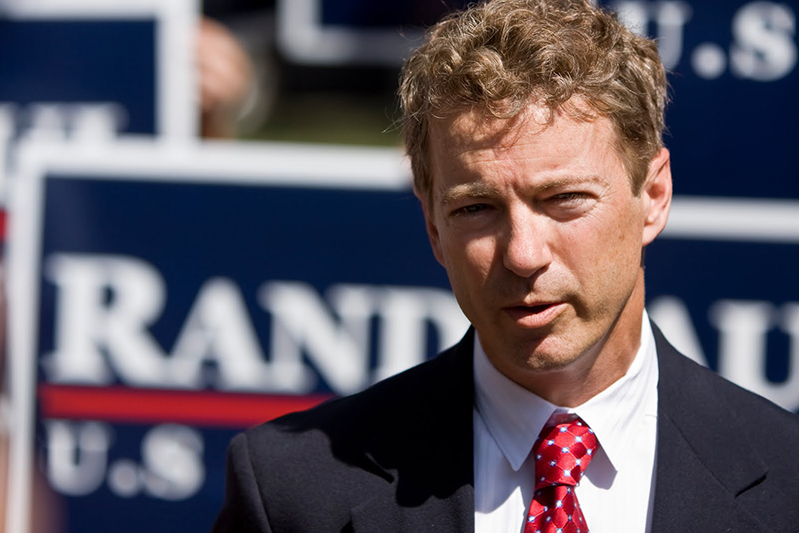
Kentucky Sen. Rand Paul made a bold allegation against Republican foreign policy hawks, accusing them of being responsible for the rise of ISIS in the Middle East. Louisiana Gov. Bobby Jindal slammed Paul's views, calling him "unsuitable" for president.
In an interview with Joe Scarborough of MSNBC on Wednesday, the son of former presidential candidate and outspoken libertarian Ron Paul claimed that foreign policy hawks within the Republican Party were to blame for the rise of ISIS. The terror group has seized large parts of Iraq and Syria and persecutes Christians and other minorities in the region.
"ISIS exists and grew stronger because of the hawks in our party who gave arms indiscriminately," Paul said. "They created these people. ISIS is all over Libya because these same hawks in my party loved - they loved Hillary Clinton's war in Libya. They just wanted more of it."
Paul then elaborated on what he would do in the region to take out ISIS, adding that he has no problem "defending ourselves" from threats.
"I think the ultimate answer is to get an Arab coalition and boots on the ground that will stop them," Paul said. "You need [Turkey] fighting. The Turks need to have their army up on the border and need to fight."
Paul also mentioned that he would recognize the Kurdish people's right to exist and arm them. Given the historical tension between Turks and Kurds in the region, he planned to get them to sign a "peace treaty" so they could cooperate in the fight against ISIS if he was president.
"I would get a peace treaty [signed] between the Kurds and the Turks," Paul said. "The Kurds have to give up any pretensions on getting any territory in Turkey, while Turkey gets along together [with us] to wipe out ISIS."
According to Steve Peoples of the Associated Press, Paul's views have set him apart from many of his Republican colleagues, including those running for president in 2016. Peoples elaborated on how Paul would form his foreign policy.
"Paul favors less military intervention abroad, wants a dramatic reduction in U.S. money to foreign governments and stands in opposition to the Patriot Act and the U.S. policy behind drone strikes," Peoples wrote. "It all makes him something of an outlier on foreign policy and national security in the GOP field."
The Associated Press reported that Paul's comments drew the attention of Jindal, who claimed that he was "unsuited to be commander-in-chief."
"We have men and women in the military who are in the field trying to fight ISIS right now, and Senator Paul is taking the weakest, most liberal Democrat position," Jindal, a potential rival for the GOP presidential nomination, said. "We should all be clear that evil and radical Islam are at fault for the rise of ISIS, and people like President Obama and Hillary Clinton exacerbate it."
Jindal then went on to slam Paul's position in a press release, contending that "American weakness, not American strength, emboldens our enemies."
"Senator Paul's illogical argument clouds a situation that should provide pure moral clarity," Jindal said. "Islam has a problem. ISIS is its current manifestation. And the next President's job is to have the discipline and strength to wipe ISIS off the face of the earth."
Jindal added that he thought it was "impossible to imagine a President Paul defeating radical Islam." However, the Associated Press noted that Paul dismissed such accusations from Jindal and other Republicans who claimed that his foreign policy was weak.
"Everything that they have talked about in foreign policy, they have been wrong about for 20 years, and yet they have somehow the gall to keep saying and pointing fingers otherwise," Paul said.







